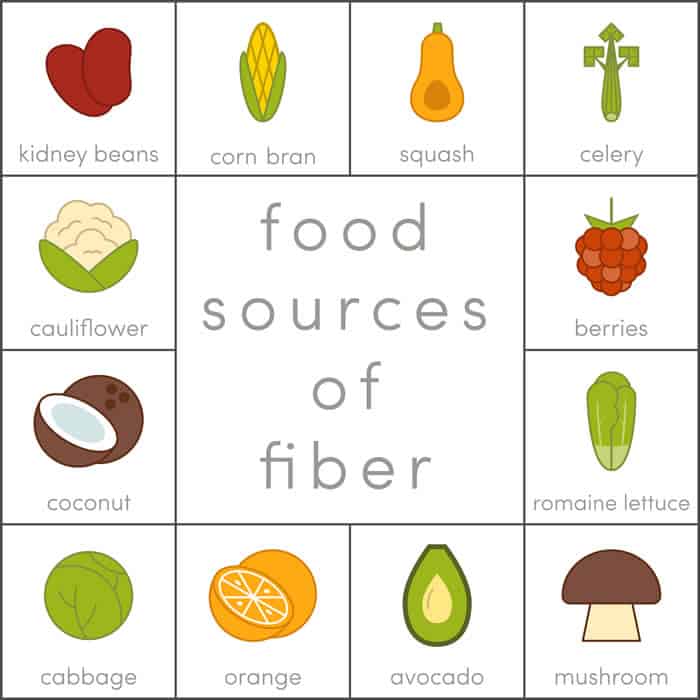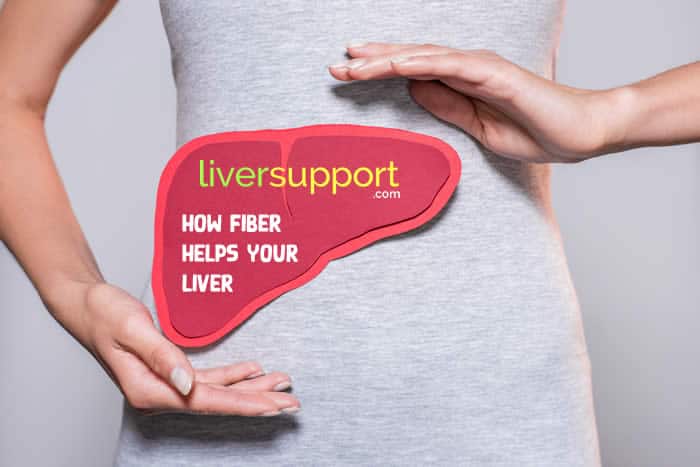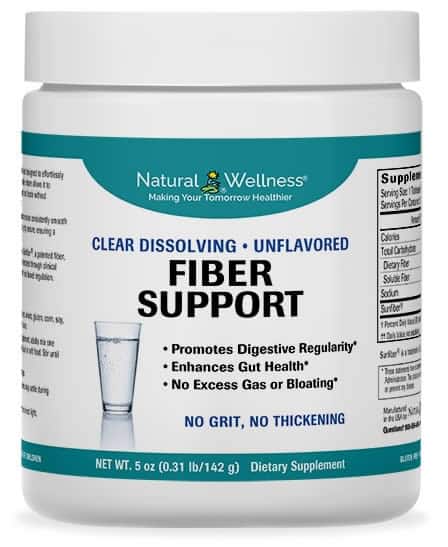
Previous
NAC's New Research

Next
FDA Clears New Technology for Early Liver Disease Diagnosis
How Fiber Helps Your Liver
Discover how fiber can benefit liver function, along with its role in fatty liver, liver cirrhosis, and detoxification.
It’s crucial to keep your liver healthy and functional as possible. One way to do this involves increasing your fiber consumption. Before we get into that, let’s first talk briefly about the health benefits of fiber, in general.
Fiber’s Many Health Benefits
Research indicates that fiber plays a major role in the digestive process. (1) Not only can eating more fiber help regulate your food intake (fiber fills you up), but it also assists with the regulation of nutrient absorption and metabolism. When all of this is combined, it can reduce your risk of developing health issues related to high cholesterol and high blood sugar.
This particular piece of research adds that dietary fiber intake has also been connected with the prevention and management of chronic health conditions. This includes type 2 diabetes, cardiovascular disease, and colon cancer.
While all of this is great, what can fiber do for the liver specifically?
Fiber and Your Liver
The American Liver Foundation suggests that people eat more fiber because it helps the liver function at optimal levels. (2) But how does it work?
According to a 2017 study published in the journal Nutrients, obese subjects with higher insoluble fiber intakes—more specifically, fruit fiber—also had improved markers associated with liver health.

Namely, increased insoluble fiber consumption was associated with improvements in:
• fatty liver index
• hepatic steatosis index
• and non-alcoholic fatty liver disease (NAFLD) liver fat scores. (3)
Fiber and Liver Cirrhosis
Other pieces of research have found that consuming a high-fiber diet also appears to be beneficial for certain liver diseases. Liver cirrhosis is one.
For example, a 2018 study involved 72 patients who had been diagnosed with cirrhosis. Those taking a branched-chain amino acid supplement in addition to following a high-fiber, high-protein diet had an increase in muscle mass and a decrease in fat mass. (4)
This is important, in part, because obesity can increase one’s risk of liver disease, which can ultimately progress to liver cirrhosis. (5) Thus, following a diet that includes a high fiber intake may help reduce body fat, potentially also reducing liver disease risk.
Is it Good for Fatty Liver?
Other studies have reported positive findings in fiber’s ability to impact fatty liver disease. One of the most recent was published on September 29, 2021, in the Journal of Nutrition. After studying the diets of 1,682 ethnically diverse, older participants, it was noted that those who consumed the most fiber also had lower levels of liver fat. (6)
This echoes the findings of previous studies, such as one involving 6,613 participants aged 20 years and up. This piece of research reported that subjects eating more cereal, fruit, and vegetable fiber had a reduced risk of non-alcoholic fatty liver disease. (7)

Does it Detox Your Liver?
What about liver detoxification? Can eating more fiber help with that too? The answer appears to be yes!
Research published in Advances in Nutrition explains that the process by which fiber aids in liver detoxification is somewhat complex. It starts with fiber altering the gut microbiome which influences a variety of other responses (gastrointestinal and endocrine, for example) that ultimately impact the physiology and biochemistry of the liver. (8)
In simple terms, eating fiber sets off a chain reaction that helps the liver function more effectively, increasing its ability to better detox the blood.
Conclusion
In the end, fiber offers numerous benefits related to liver function. So, it may be advantageous to add high-fiber foods such as fruit, vegetables, and whole grains to your diet if your goal is optimal liver health.
If you’re struggling to meet your daily fiber intake, Fiber Support might be your solution.
Fiber Support is your daily solution for achieving recommended dietary fiber intake effortlessly. With 3 grams of tasteless and odorless soluble fiber per serving, derived from the patented SunFiber®, it dissolves clear in any food or drink, supporting digestive health and cholesterol levels.*
(1) Kaczmarczyk, M., Miller, M., Freund, G. (2012, August). The Health Benefits of Dietary Fiber: Beyond the Usual Suspects of Type 2 Diabetes Mellitus, Cardiovascular Disease and Colon Cancer. Metabolism. doi:https://doi.org/10.1016/j.metabol.2012.01.017
(2) American Liver Foundation. (n.d.). Liver Disease Diets. Retrieved October 21, 2021, from https://liverfoundation.org/for-patients/about-the-liver/health-wellness/nutrition/
(3) Cantero, I., Abete, I., Monreal, J., Martinez, J., Zulet, M. (2017, July). Fruit Fiber Consumption Specifically Improves Liver Health Status in Obese Subjects Under Energy Restriction. Nutrients. doi:10.3390/nu9070667
(4) Ruiz-Margain, A., Macias-Rodriguez, R., Rios-Torres, S., Roman-Calleja, B., Mendez-Guerrero, O., Rodriguez-Cordova, P., Torre, A. (2018, January-March). Effect of a High-Protein, High-Fiber Diet Plus Supplementation with Branched-Chain Amino Acids on the Nutritional Status of Patients with Cirrhosis. Revista de Gastroenterologia de Mexico (English Edition). doi:https://doi.org/10.1016/j.rgmxen.2017.02.005
(5) Schiavo, L., Busetto, L., Cesaretti, M., Zelber-Sagi, S., Deutsch, L., Iannelli, A. (2018, August 14). Nutritional Issues in Patients with Obesity and Cirrhosis. World Journal of Gastroenterology. doi:10.3748/wjg.v24.i30.3330
(6) Kaenkumchorn, T., Merritt, M., Lim, U., Le Marchand, L., Boushey, C., Shepherd, J., Wilkens, L., Ernst, T., Lampe, J. (2021, September 29). Diet and Liver Adiposity in Older Adults: The Multiethnic Cohort Adiposity Phenotype Study. The Journal of Nutrition. doi:https://doi.org/10.1093/jn/nxab300
(7) Zhao, H., Yang, A., Mao, L., Quan, Y., Cui, J., Sun, Y. (2020, November 19). Association Between Dietary Fiber Intake and Non-Alcoholic Fatty Liver Disease in Adults. Frontiers in Nutrition. doi:https://doi.org/10.3389/fnut.2020.593735
(8) Kieffer, D., Martin, R., Adams, S. (2016, November). Impact of Dietary Fibers on Nutrient Management and Detoxification Organs: Gut, Liver, and Kidneys. Advances in Nutrition. doi:10.3945/an.116.013219







